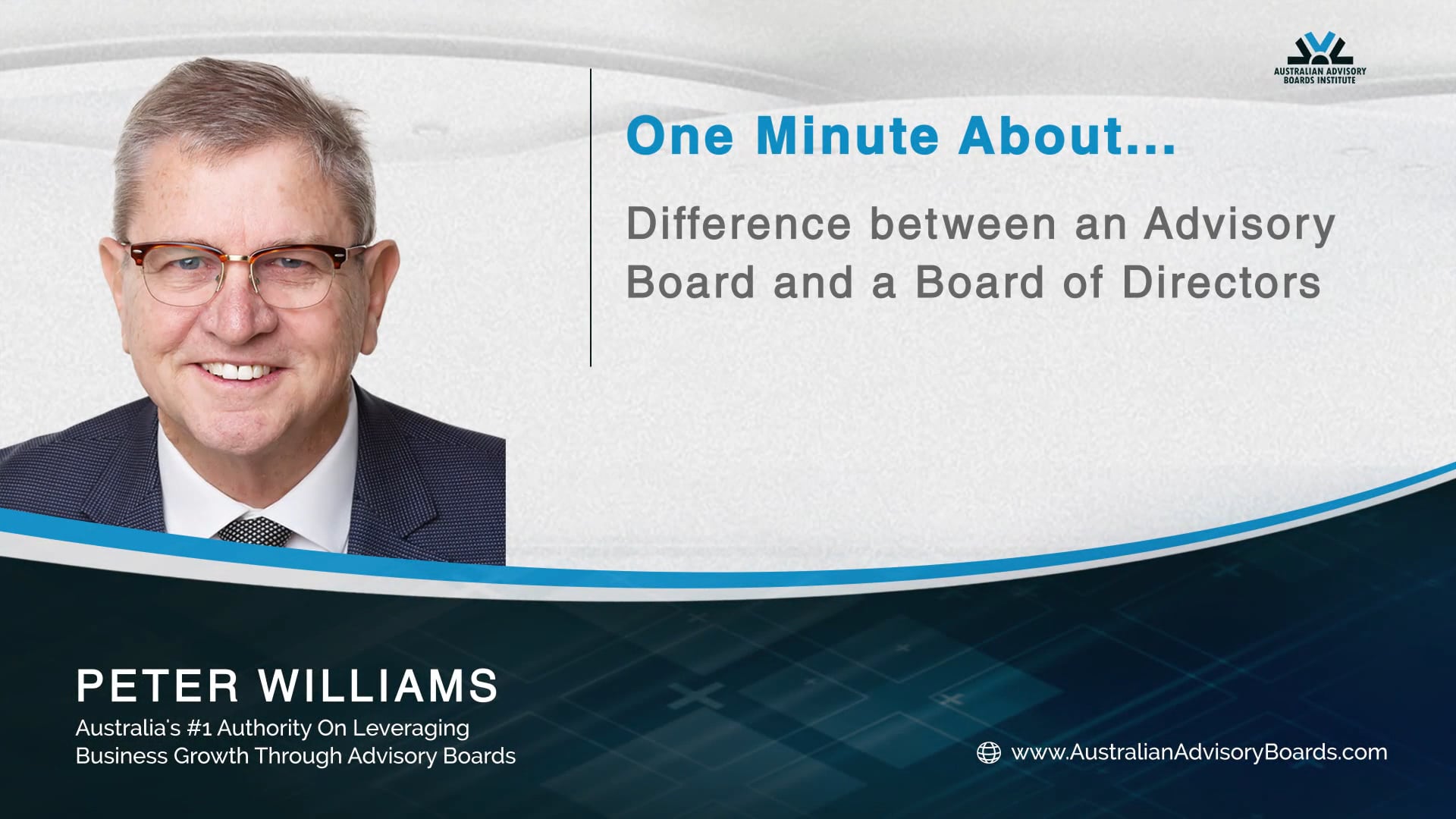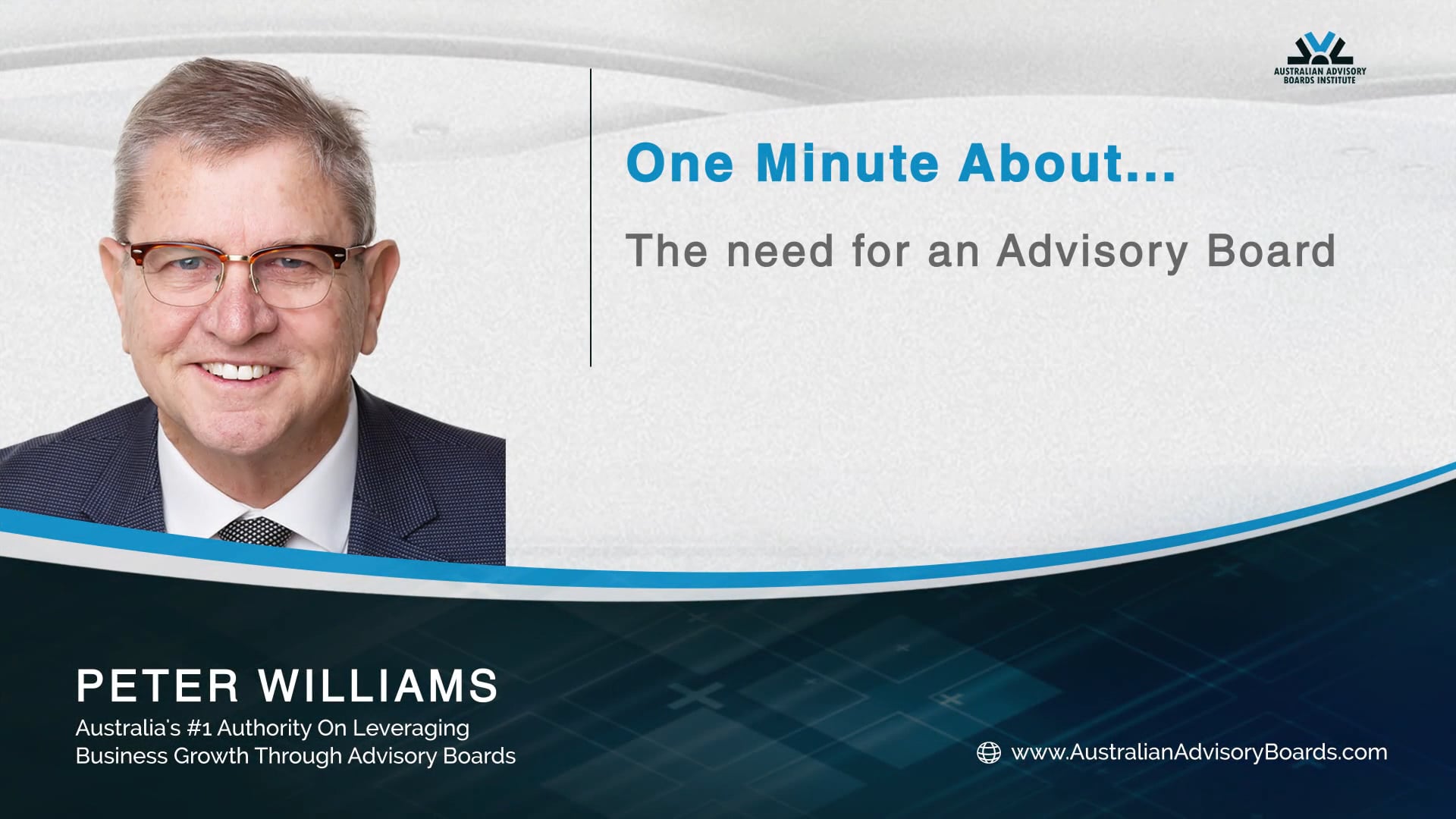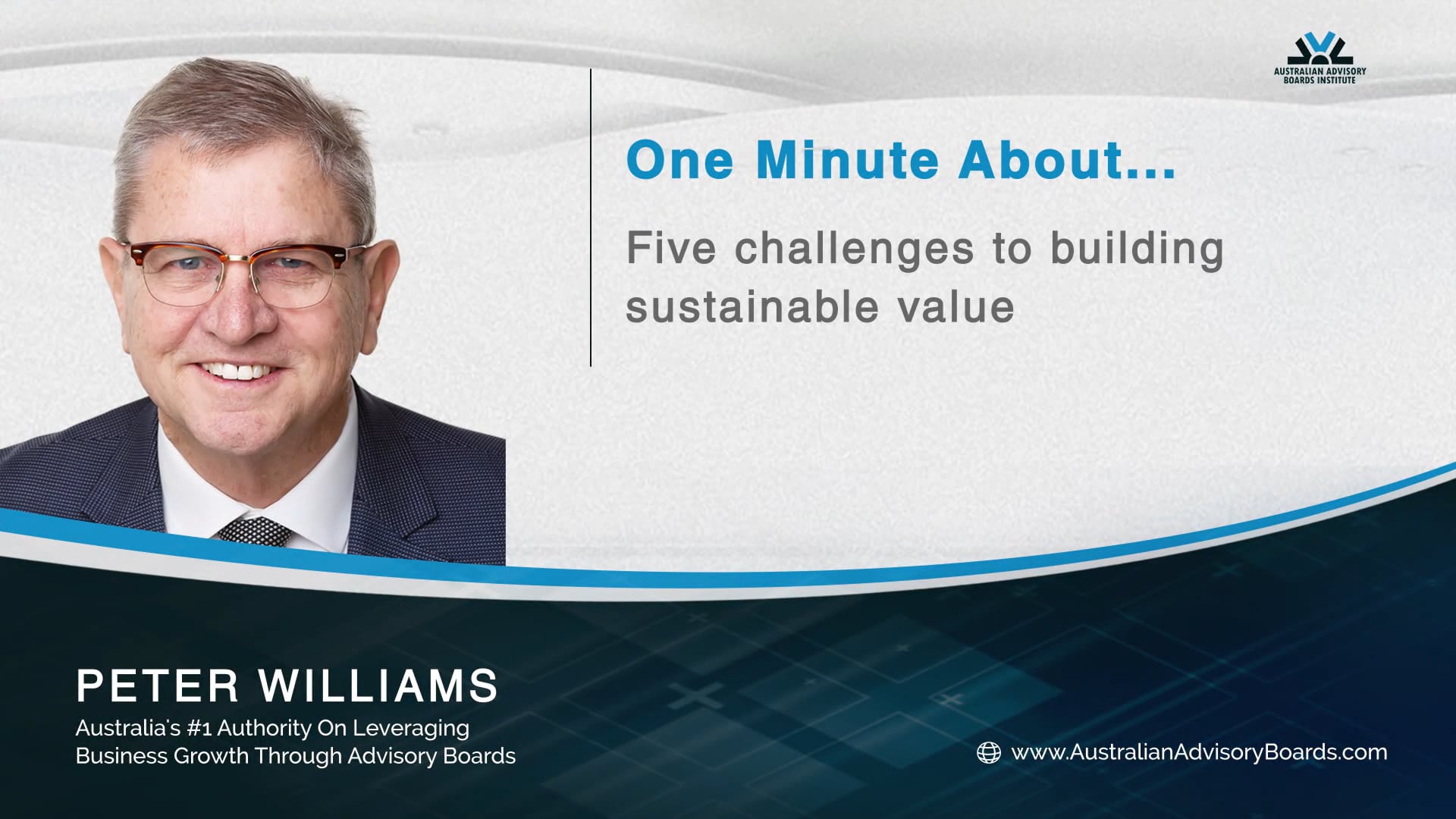Frequently asked questions
What is an Advisory Board?
Advisory boards are one or more individuals, ideally with complementary skills that create a valuable skill matrix and can act in an advisory capacity to the CEO/Managing Director, Formal Board, or owner of a company to help you make better decisions and develop a long-term vision for your business.
Unlike a formal board of directors, it has no decision-making powers and carries no legal fiduciary liability to your company; advisory boards provide strategic advice, act as a sounding board for ideas, and bring different perspectives to the CEO and leadership team or the board.
Why should I use an Advisory Board?
When you feel that you want to grow to the next level, when you need to break through tough barriers, when you want to develop your leadership team or when you simply wish to access ideas from an independent experienced business person or have a ‘safe’ place to discuss issues of significance, you NEED an Advisory Board.
The common denominator is that all companies face important and critical decisions for which senior management recognises the need to gain a broader perspective from outside the organisation. External advisors can objectively assess the specific factors and dynamics, and provide insight and advice to ensure the best decision possible. Without input from such an Advisory Board, companies are exposed to the risk of insular thinking and decision-making.
Successful business people know that Advisory Boards are indispensable to informing decisions and producing superior results.
For many small to medium-size organisations that cannot afford or do not wish to have a formal board, the advisory board is the best-suited option to maintain or introduce a fit-for-purpose level of governance, obtain strategic advice or reach the next level of growth. Advisory Boards are also common in large organisations.
When should I use an advisory board?
It is advisable to have an advisory board if you do not have a permanent board or your permanent board needs additional help and advice. Often, your own board may reach an impasse and may require advice from professional advisors who have been in that situation before and solved it.
What evidence is there that Advisory boards add real value?
The Business Development Bank of Canada undertook a study of 1,000 SMEs in 2016.
The study found:
- Annual sales were 24% higher on average between 2001 and 2011 at businesses with an advisory board, compared to companies that didn’t have an advisory board but had similar characteristics.
- Sales grew by 66.8% on average in the first three years after a company created an advisory board. This compares with 22.9% sales growth in the three years before the board was formed.
- Productivity increased by an average of 5.9% in the first three years after a board was formed compared with 3.2% in the previous three-year period.
What is mentoring?
In Greek mythology, Mentor was a close friend of Odysseus and was entrusted by him to provide prudent guidance and counsel to his son Telemachus when Odysseus left Ithaca to fight the Trojans.
Today, the name Mentor is synonymous with being a trusted and wise adviser.
What are the benefits of mentoring?
A mentoring will help you to develop yourself by sharing your journey with you.
When is a good time to start?
Generally, executives engage a mentor when they are going through a period of change (e.g., a promotion, a move into a new industry) and are feeling unsure of themselves (feelings of uncertainty might also creep up on you as you struggle to cope).
A mentor will focus on your growth and development as a business leader and will be a sounding board for new ideas, fresh thinking, and challenges.
The best time to start is before it’s too late!
What is a CEO peer group?
This is a group of CEOs who meet regularly in confidential environments where CEOs can share ideas, best practices, experiences, and advice.
High-performing executives value the perspective of other leaders, as well as the wisdom that comes from the practical experiences learned by others in similar circumstances.
Is it truly lonely at the top?
Most CEOs do not have “safe” environments where they can share their concerns. CEOs often feel that any public show of vulnerability or uncertainty risks losing the confidence or respect of their boards of directors, employees, or customers.
Rightfully, most CEOs are reluctant to open up to consultants or other subject matter experts because these vendors have conflicting interests (after all, they live off client fees, and succeed maximally when they create client dependency).
Furthermore, people who haven’t walked in a CEO’s shoes often do not have the perspective to balance competing interests that CEOs need to weigh, which can include employee interests and morale, investor demands, customer focus, and the ever-present tension between growth and profitability.
For these reasons, an increasing number of CEOs find that advisory boards, peer groups, or mentors are the best way to obtain such perspectives.










